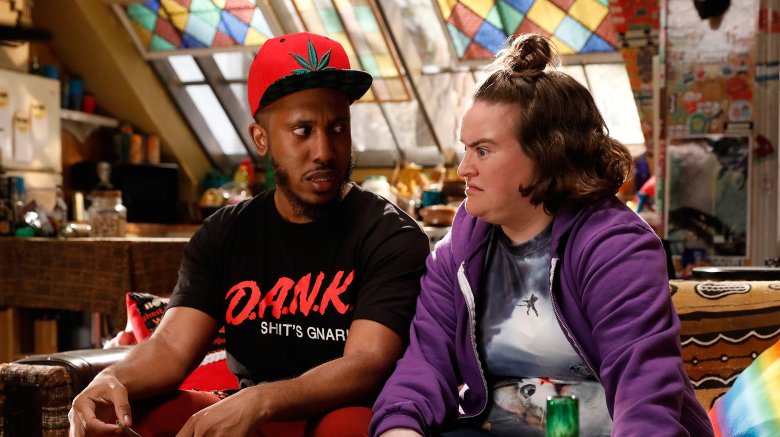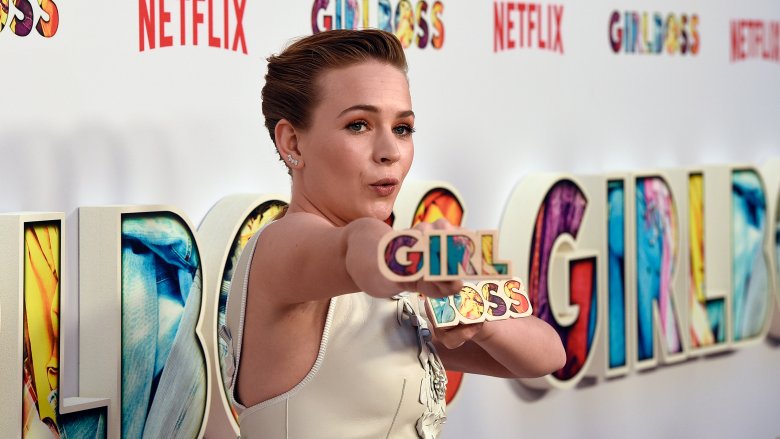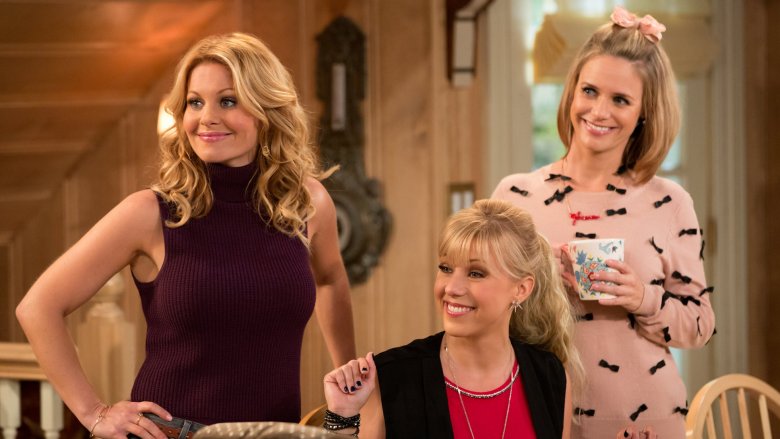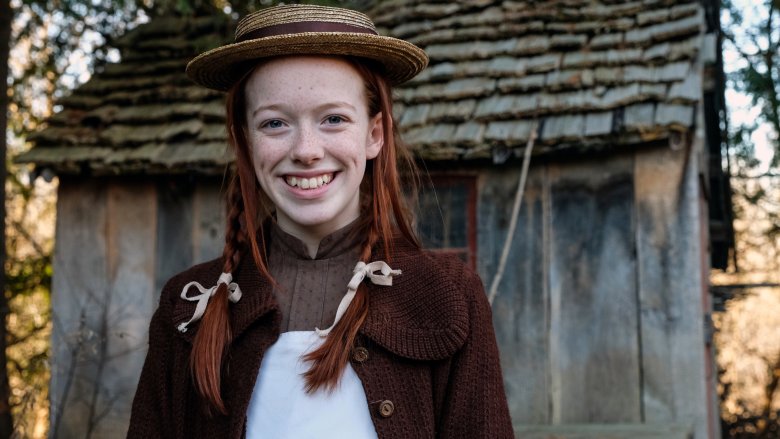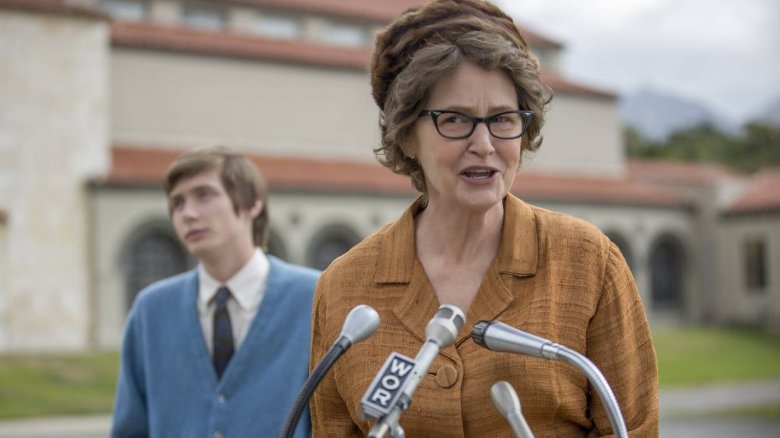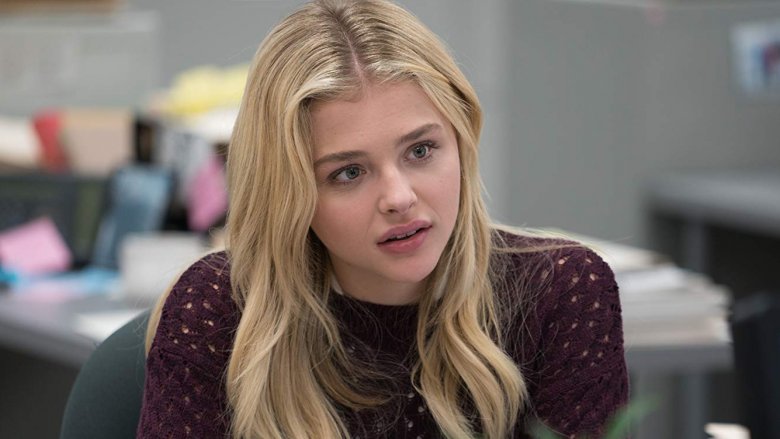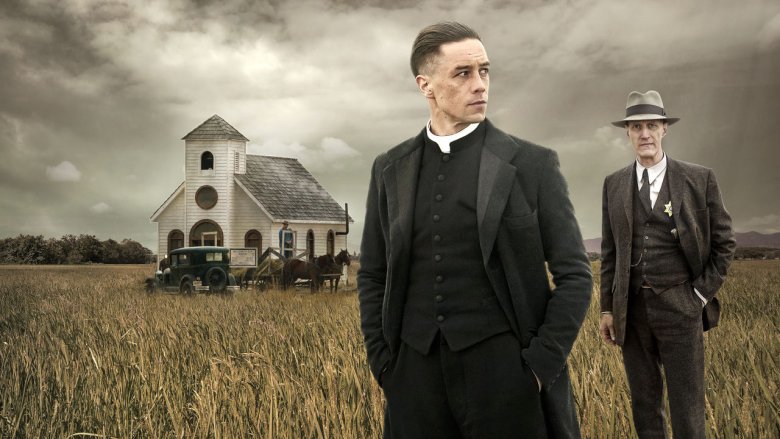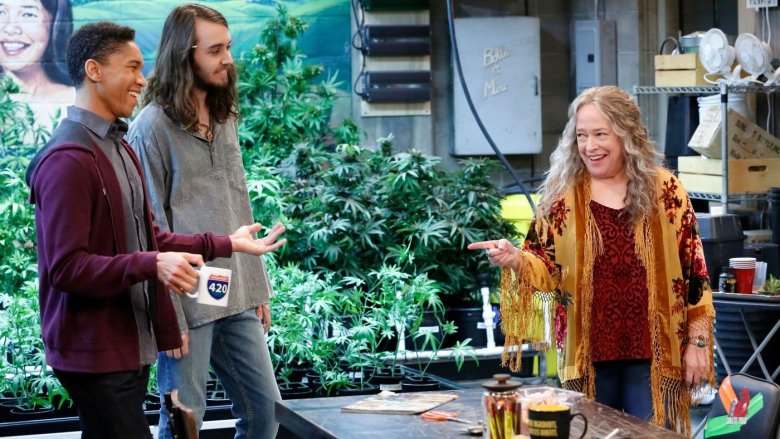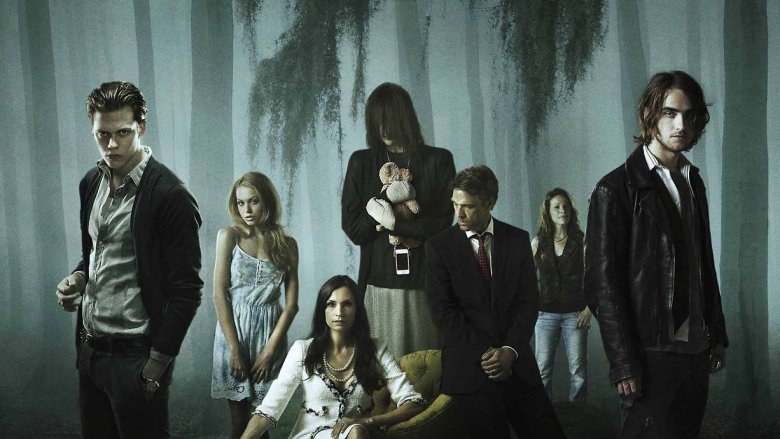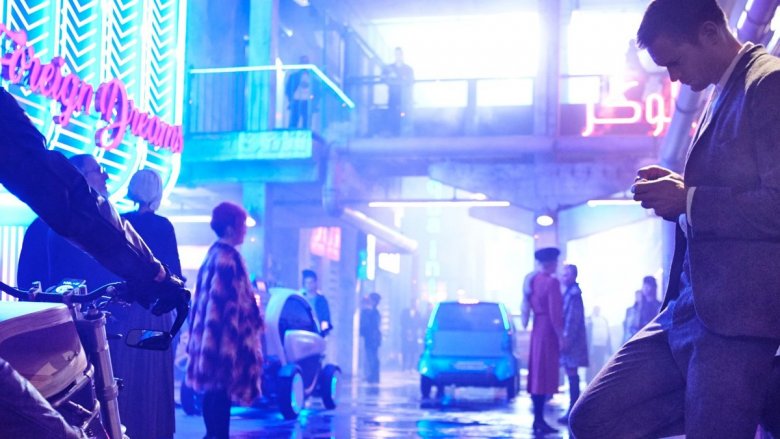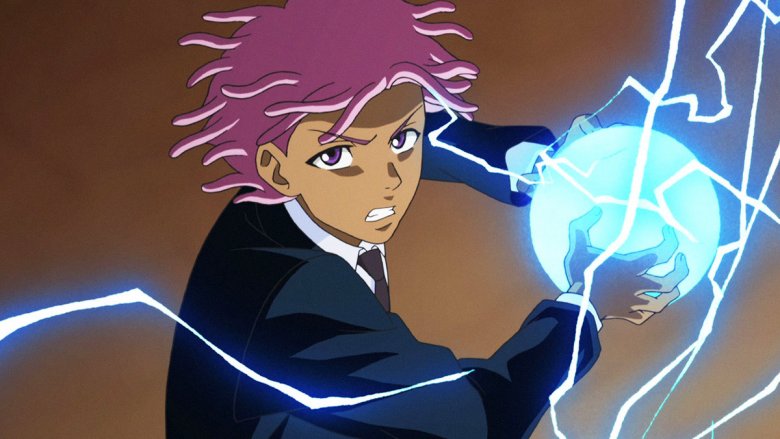The Best Netflix Originals That Critics Were Totally Wrong About
From true crime sagas like Making a Murderer to frothy fun like To All the Boys I've Loved Before, Netflix's original entertainment is on a roll. Accordingly, the last few years have seen an absolute flood of production across all genres. Terrifying new takes on beloved teen witches? Welcome to Netflix, Chilling Adventures of Sabrina! Fictionalized retellings of campy, borderline exploitative women's wrestling programs? Come on down, GLOW! But not everything can be a smashing success. Alongside Orange Is the New Black and Narcos slump critical failures like Brain on Fire and Disjointed. But are these less-than-beloved creations really all that bad? We decided to take another look at some of the most critically condemned Netflix Originals — and we've found that there's still a lot to love. Here's a reappraisal of the Netflix series that critics were totally wrong about, and why.
Girlboss
Vanity Fair posited that Girlboss might have been Netflix's first "truly terrible show": a smug summation of millenials at their worst, embodied by supposed heroine and wannabe mogul Sophia Amoruso. It didn't help that the real-life Amoruso, CEO of online fashion retailer Nasty Gal, was catching flak for her business practices as the show premiered. Nasty Gal was under fire for terminating pregnant employees (while touting its feminist bonafides), went bankrupt, and ended up selling for millions below what it had once purported to be worth. Girlboss wasn't just bad — it was badly timed as well.
But the show, on its own, is a whip-smart delight. Critics slammed the fictionalized Amoruso for being imperfect, stretching it into accusations of vapidity and narcissism. The reality is simpler: this is a show about a person being as messy and fallible as people often are. Audiences don't care if Amoruso makes mistakes — in fact, that's why they're there. To watch a protagonist struggle and get back up again, despite the errors of the past and whatever personal failings might be present, is the fuel of drama. We love it in Don Draper, we love it in Walter White, and we love it in Sophia Amoruso. She's a brat? Sure. She's ruthless? Bring it on. We're not here for a lesson — we're here for a story. Girlboss delivers with dark-humored style.
Fuller House
The original Full House was a comforting slice of family values where problems were solved with open-hearted honesty and a quip or two from a precocious, pigtailed toddler could undo any wrong. It wasn't interested in the insoluble, the oppressive, or the plainly, irrevocably sad — and it didn't have to be, because there are other, different shows dedicated to tackling those aspects of life. Fuller House follows the same formula, but pulled into our seemingly more complicated present, is subject to harsher scrutiny.
Fuller House is sappy — as sappy as the first show. Because sometimes, amidst the hustle and tragedy of daily life, people want sappiness. They want problems that can be fixed, families that hug, sentimentality that isn't afraid to show itself plainly. It doesn't make sense to judge Fuller House for being a nostalgic revisit of simpler times when that's the naked point of it. Adults that watched the original show as wide-eyed children now see it as twee, missing the fact that it isn't for the person they've become — it's for the child they still have within them. For audiences willing to open their hearts to what Fuller House unapologetically is, it's a tonic for harsh times: A lesson in letting sentimentality in, even if just for 22 minutes.
Anne with an E
This adaptation of L. M. Montgomery's beloved Anne of Green Gables series has proved divisive. Longtime fans and critics alike condemn it for the darkness it brings to the beloved children's story; rather than leaving Anne's traumatic childhood behind, it examines how her experiences might have shaped her in the form of flashbacks and panic attacks. Moreover, characters like Gilbert Blythe, Anne's love interest, and Matthew and Marilla, the brother and sister who become parents to Anne, are given entirely original subplots of their own. Critics argue that these additions are unnecessary at best, needlessly grim at worst. No one returns to Anne Shirley's adventures for pathos, they argue. They want what they already love.
But Anne with an E isn't trying to turn Montgomery's heroine into something she isn't — it's just bringing her into the modern day. The vast majority of the series is faithful to Montgomery's starry-eyed vision: Anne loses herself in the pleasures of friendship, raspberry cordial, and teaching other orphans to read in every single episode. This adaptation is merely interested in throwing those qualities into sharper relief, by examining the hardships that make the cheery moments possible. Anne is still a wide-eyed optimist, Marilla and Matthew still watch over her with consternation and fondness, and Gilbert still learns to love the frustrating redheaded with a taste for mischief. Anne with an E just wants to understand how they get there, and in the process, appreciate the warmth of the story more deeply.
The Most Hated Woman in America
This impassioned biopic chronicles the controversial life and death of Madalyn Murray O'Hair, the founder of American Atheists and the leader of the push to take prayer out of public schools. Critics called it disjointed, claiming its lack of focus and tonal inconsistency resulted in a story that ping-ponged crazily between comedy, tragedy, and points in between. This isn't entirely untrue: The Most Hated Woman in America plays fast and loose with the audience's expectations and isn't afraid to break certain rules of biopic making. But the reality is that O'Hair's life, which included legal victories, family drama, and an untimely and violent death, was just as bizarre and prone to wild shifts. The filmmakers were being honest about a woman who defied convention and normalcy and a life that demands its portrayers be willing to go to tonal extremes. Anchored by Melissa Leo's stirring performance, it is a film as utterly unique as its subject, a journey from deep love to towering pride and all that comes from the collision of those two fundamental forces. O'Hair resists categorization: she is neither the triumphant crusader nor the sneering witch. This movie honors that, and chooses to live in the volatile in between where she can be the person she was: frustrating, contradictory, and driven by unshakable conviction.
Brain on Fire
Chloe Grace Moretz plays Susannah Cahalan in this terrifying descent into medical turmoil, based on the real-life Cahalan's battle with anti-NMDA receptor encephalitis. Her symptoms are harrowing and sudden, sending her into periods of rage, paranoia, and extreme sensitivity that seem to have no cause. Doctors suggest all manner of incorrect diagnoses as Cahalan sinks further and further into abject suffering, grabbing desperately at remedies for exhaustion, schizophrenia, and sleep deprivation. Critics claimed the movie relied too heavily on cliches for meaning, but ignore the fact that Cahalan's story really did end with an eleventh-hour deus ex machina: the moment the right doctor identified the illness ravaging her brain and the relatively straightforward road to recovery it led her on. Beyond this, however, is Moretz's underrated performance, which veers wildly as her character's brain careens more and more off-track. She doesn't just sell anger at a dripping faucet for daring to disturb Cahalan's delicate peace — she gets across the sheer terror of the moment with the concrete conviction of a great performance. Brain on Fire ends with an unlikely victory, but it's first and foremost a story about illness: the way it can destabilize a life, the way it launches sufferers into a strange and scary new universe of jargon and uncertainty, and the way it can be solved by the unlikeliest confluence of fate.
Damnation
This chronicle of a 1930s Iowa farmers' strike was derided by critics for feeling overlong and more than a little like homework. While it might not be everyone's cup of tea, for the connoisseur of historical drama, Damnation is anything but dull. It's a brutal story, to be sure, and it doesn't offer hope without reason. In a world crowded with sepia-toned reminiscence of happy-go-lucky hobos riding trains to the Rock Candy Mountain, there is need for a show as dark in tone as Damnation. The writing is strong, the performances passionate, and the drama is rooted in a real American struggle that echoes to this day. It is, in fact, very much in line with the American tradition of flinty-eyed worker's stories, from John Steinbeck to Upton Sinclair — a genre that's spent decades under fire. If it's grim, it's because it's telling the truth, and there is always room for the truth in our adaptations of the past.
Disjointed
Kathy Bates stars as Ruth Whitefeather Feldman in this cheeky sitcom about the ins and outs of a medical marijuana dispensary. A devoted advocate for legalization, she's finally living her dream, selling cannabis to the people of Los Angeles alongside her budtenders. Critics panned the series as "bland," suffering from a same-old sort of sitcom jokiness with few risks or innovations. But the reality is that the fact of the show's premise — older female protagonist, itself a rarity, sells weed from a legal storefront — is innovation enough. The mix of familiar, chummy sitcom rhythms and totally uncharted story territory is electric, breathing new life into old formulas and reminding us why we came to rely on them in the first place. Bates is, of course, excellent, bringing to mind her short-lived but fondly-remembered stint as Jo on The Office. But if there's a standout performance in the cast, it's Betsy Sodaro playing Dabby, co-host of the webseries Dank and Dabby, who breathes new life into moldy old stoner jokes. Disjointed might use some old methods, but it pushes them to hilarious new ends.
Hemlock Grove
Hemlock Grove follows the bizarre goings-on of the titular town, a Pennsylvanian community built around a defunct steel mill that has more than its share of monsters, myths, and mysterious murders. This is a show with no interest in subtlety: it's violent, it's sexual, and it never passes up a chance to go further in either arena. Eyeballs protrude, skin glows, and literal angels impregnate women through their dreams. Critics flayed it for what they saw as an inability to bring these disparate elements together — but they missed the fact that Hemlock Grove isn't interested in easy cohesion. It's camp of the purest kind: utterly ridiculous, totally invested in its own sense of itself, and never willing to miss an opportunity to rachet up the stakes, costuming, or gore. For someone willing to go along with on that sort of marvelously obscene journey, it's one heck of a wild ride.
Mute
A stylish sci-fi fever dream of a film, Mute is utterly uninterested in conforming to the audience's expectations. Instead, it follows Leo, a mute bartender, as he searches a neon-soaked Berlin for his missing lover. Reviews heaped scorn on the movie, decrying it as an exercise that might have been intriguing in concept but ended up as a total failure in execution. But if one accepts Mute as it is — a purposefully odd neo-noir looking to play with cinematic structure — there's a lot to enjoy. Alexander Skarsgård's performance as Leo never feels limited by his character's disability, and he grounds the film's flights of fancy with his every gaze. Visually, it occupies a hazy, cyberpunk dreamscape full of blue mist and neon striping that wash the characters and their environs in an otherworldly glow. This a movie unlike any other, and that means it doesn't always land correctly. But when it does, it's sublime.
Neo Yokio
Kaz Kaan, a pink-haired socialite who loves haute couture as much as he loves being a magic-wielding demon slayer, stars in this bizarre mash-up of anime and tabloid drama. Created by Vampire Weekend frontman Ezra Koenig and starring inveterate oddball Jaden Smith, Neo Yokio was always going to be hard to judge by normal standards of quality. This is a series in which real-life fashion blogger Tavi Gevinson plays Helena St. Tessero, a fashion blogger who decides to give up her life of decadence for Marxist asceticism. Jude Law plays an enormous robot battle butler named Charles. Giant, sentient Christmas trees and possessed objets d'art that speak with hillbilly accents threaten the city. Neo Yokio is grandly, wildly goofy, and though it was panned by critics, it was quickly embraced by fans who made its non-sequiturs into rallying cries. It's not exactly a parody, but it's not exactly playing it straight, either — rather, it's making up the rules as it goes along. The results are as strange as they are delightful.
